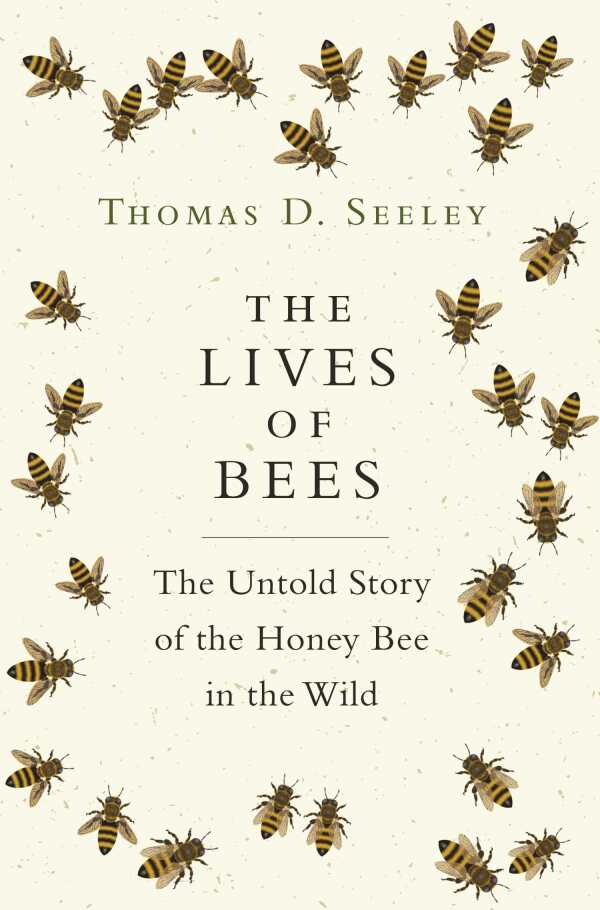The Lives of Bees
The Untold Story of the Honey Bee in the Wild
One of the more startling facts Thomas Seeley, the Horace White Professor of Biology at Cornell University, cites in his comprehensive and essential The Lives of Bees is that “the honey bee provides nearly half of all crop pollination services worldwide.” The importance of the honey bee to the earth and humans is undeniable, and many volumes have been written about the subject. The differentiating factor of this book is that, unlike previous works, The Lives of Bees focuses primarily on how colonies of honey bees live in the wild.
The book both celebrates and chronicles the natural history of the honey bee. Using his own experimental research and drawing on numerous studies, Seeley provides an in-depth scientific look at honey bee colony nests, reproduction, food collection, temperature control, and more. His hands-on experience with honey bees in the Ithaca, New York area, where Cornell is located, personalizes the story.
Just as fascinating as the honey bee itself is the complex relationship this insect has with humans who, as Seeley writes, have manipulated bees “to boost their productivity.” Perhaps the most interesting portion of the book is the comparison of wild colonies with managed colonies. Seeley identifies and explores twenty-one distinct differences between the living conditions of each. He closes the book with a section entitled “Suggestions for Darwinian Beekeeping,” in which he outlines fourteen specific steps beekeepers can take to help honey bees “live with a better fit to their environment, hence with less stress and better health.”
As the book compares and contrasts honey bee colonies in the wild with those controlled by humans, it becomes clear that honey bees’ lives can be enriched or endangered by human beings. Seeley urges beekeepers in particular to focus “less on treating a honey bee colony as a honey factory or a pollination unit and more on admiring it as an amazing form of life.”
Reviewed by
Barry Silverstein
Disclosure: This article is not an endorsement, but a review. The publisher of this book provided free copies of the book to have their book reviewed by a professional reviewer. No fee was paid by the publisher for this review. Foreword Reviews only recommends books that we love. Foreword Magazine, Inc. is disclosing this in accordance with the Federal Trade Commission’s 16 CFR, Part 255.

